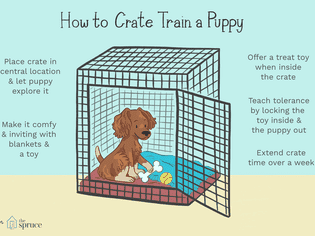Rich in vitamins A and C, magnesium, potassium, and dietary fiber, nectarines are a sweet and nutritious summer fruit. But are nectarines safe for dogs? The nutrients in nectarines could provide some benefits for our four-legged friends, but there are some potential dangers with offering your pooch nectarines or peaches. Find out if it's okay to feed your dog nectarines, and if so, how much, and under what conditions.
Are Nectarines Safe for Dogs?
While there are some fruits that aren't particularly Fido-friendly, like grapes, nectarines are a fruit that can be safely offered to your pet. However, there are some caveats to that rule—for example, the portion sizes should be kept very small (think one to two slices for a small breed, or up to four or five for a larger dog), as nectarines have a higher sugar and fiber content.
Since nectarines are a fiber-rich fruit, offering your dog too much fiber can lead to tummy troubles like diarrhea. If you are going to share nectarines with your dog, be sure to avoid canned nectarines, which often contain preservatives and added sugar. These preservatives help retain the fruit’s flavor and color, but all that extra sugar is a no-no for your pet. Regularly feeding your dog sugary foods increases the risk of weight-related issues like obesity and diabetes, while also affecting your pooch's chompers and causing tooth decay.
Can Eating Nectarines Benefit Dogs?
Both nectarines and peaches are packed with vitamin C. They are also a good source of dietary fiber, vitamin A, magnesium, and potassium. But since dogs’ bodies are already capable of producing the vitamin C they need, offering fruits like nectarines aren't entirely necessary, even though our dogs may potentially reap some health benefits from the fruit's other nutrients. For example, some believe that a boost of vitamin C can be beneficial for dogs if they've ingested certain toxic substances, such as garlic or onion powder, however there have not been convincing studies to support this theory.
The dietary fiber that can be found in nectarines is also beneficial to a dog’s digestive health, while helping to ward off bouts of both diarrhea and constipation. The vitamin A in both peaches and nectarines can help boost your dog’s eye health as well as improve their skin and fur, while potassium helps a dog’s body balance fluids and enable many enzymes, muscles, and nerves to work properly.
Magnesium is also an important nutrient for all dogs, as it helps the body absorb vitamins. It contributes to your dog's bone health and the functioning of many important enzymes.
The Dangers of Nectarines for Dogs
Even though nectarines aren't toxic to dogs, it doesn't mean you'll want to allow your dog to chow down on as much as he wants. One health concern with fruits like nectarines is that their high sugar content can lead to gastrointestinal issues for your dog, including vomiting and diarrhea if consumed in excess.
Additionally, rotten nectarines can also pose a dangerous issue to your pets because rotten fruits produce ethanol, which is toxic to dogs. Lastly, the pit of a nectarine should always be kept far away from your pup. These pits contain trace amounts of cyanide, which are poisonous, and the pit itself can also poke a choking hazard or lead to a dangerous intestinal blockage if swallowed. If your dog has swallowed a nectarine pit (or a peach pit), you should consult with your veterinarian right away, but symptoms to watch out for include vomiting, decreased appetite, painful abdomen, and lethargy.
You should always be sure to check with your veterinarian before offering your dog human foods like nectarines. If you get the go-ahead, be sure to only start with only a small amount (a slice or two) and monitor your pet to ensure that he doesn't have a negative reaction. Dogs that should never be fed sugary fruits like nectarines include dogs who are already overweight or have conditions such as diabetes or digestive issues.










Comments on " Can Dogs Eat Nectarines?" :